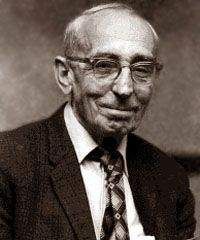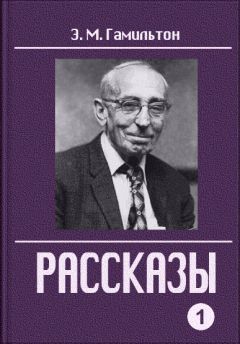Пользователь - o 3b3e7475144cf77c
use putting the question to the other pair, for their answer would be the same. Neither couple
was going to give way—any more than Lanny himself was going to give up his conviction that
it was the program of the Communists which had caused the development of Fascism and
Nazism—or at any rate had made possible its spread in Italy and Germany. Only in the
Scandinavian and Anglo-Saxon lands, where democratic institutions were firmly rooted, had
neither Reds nor anti-Reds been able to make headway.
II
So there wasn't any chance of persuading Johannes Robin to retire to a monastery or even to
a private yacht right now. He didn't pretend to know what was going to happen in Germany,
but he knew that these were stormy times and that he, the admiral, would stand by his
righting fleet. He would protect his properties and keep his factories running; and if, in order
to get contracts and concessions it was necessary to make a present to some powerful politician,
Johannes would bargain shrewdly and pay no more than he had to. That had been the way of
the world since governments had first been invented, and a Jewish trader, an exile barely
tolerated in a strange land, had to be satisfied with looking out for his own. His sons felt more
at home in Germany and dreamed of trying to change it; but for the child of the ghetto it was
enough that he obeyed the law. "Not very noble," he admitted, sadly; "but when the nobler
ones come to me for help, they get it."
The world was in a bad way and getting worse. Banks were failing all over the United
States, and unemployment increasing steadily. A presidential election was due in November,
and the political parties had held their conventions and made their nomina tions; the
Republicans had endorsed the Great Engineer and all that he had done, while the Democrats
nominated the Governor of New York, Franklin Roosevelt by name. Johannes asked if
Lanny knew anything about this man, and Lanny said no; but when the yacht picked up
some mail, there was Robbie's weekly letter, a cross between a business man's report and one
of the lamentations of Jeremiah. Robbie said that the Democratic candidate was a man wholly
without business experience, and moreover an invalid, his legs shriveled by infantile paralysis.
Surely these times called for one at least physically sound; the presidency was a mankilling job,
and this Roosevelt, if elected, couldn't survive it for a year. But he wasn't going to be elected,
for Robbie and his friends were pulling off their coats, to say nothing of opening their purses.
"I suppose Robbie will be asking you for a contribution!" chuckled the irreverent son, and
the other replied: "I have many interests in America." Lanny recalled the remark he had once
heard Zaharoff make: "I am a citizen of every country where I have investments."
III
They discussed conditions in Germany, living on borrowed capital and sliding deeper and
deeper into the pit. The existing government had no popular support, but was run by the
Herren Klub, an organization of big business men, aristocrats, and "office generals," having
some twenty branches throughout Germany. Its two most active politicians were Chancellor von
Papen and General von Schleicher, and they were supposed to be colleagues, but neither could
trust the other out of his sight. Now Papen was in office, and Schleicher was trading secretly
with the Nazis for their support to turn him out. Nobody could trust anybody, except the
eighty-five-year-old monument of the Junkerdom, General von Hindenburg. Poor alte Herr,
when the burdens of state were dumped upon him he could only answer: "Ich will meine Ruhe
haben!"— I must have my rest.
Johannes judged it certain that the Nazis would make heavy gains at the coming elections,
but he refused to worry about this. He had several of them on his payroll, but what he counted
upon most was the fact that Hitler had gone to Dusseldorf and had a long session with
Thyssen and other magnates of the Ruhr. They wanted the Red labor unions put down, and
Hitler had satisfied them that he was ready to do the job. You might fool one or two of those
tough steelmen, but not many; they knew politicians, and dealt with one crop after another; it
was part of the game of conducting industry in a world full of parliaments and parties. A
nuisance, but you learned to judge men and saw to it that none got into power who couldn't be
trusted. The same thing applied to the great landlords of Prussia; they wanted above all things
a bulwark against Bolshevism, and were willing to pay a heavy price for that service. These two
powers, the industrialists of the west and the landed gentry of the east, had governed Germany
since the days of Bismarck and would go on doing so.
"But aren't you afraid of Hitler's anti-Semitism?" asked Lanny.
"Herrgott!" exclaimed the owner of the Bessie Budd. "I was brought up in the midst of
pogroms, and what could I do then? It is said that there once lived a Jew called Jesus, and
other Jews had him executed by the Romans; such things happened ten thousand times, no
doubt; but because of this one time my poor people have to be spat upon and clubbed and
stabbed to death. What can any of us do, except to pray that it will not break out in the street
where we live?"
"But they threaten it wholesale, Johannes!"
"It is a means of getting power in a world where people are distracted and must have some
one to blame. I can only hope that if ever the Nazis come into office they will have real
problems to deal with, so that the spotlight will be turned away from my unfortunate people."
IV
Irma had voted to keep out of German political affairs, but that couldn't be arranged entirely.
There was the workers' school, in which Freddi was so deeply interested, and which had been
more or less modeled upon Lanny's own project. When they came back to Berlin Lanny's wife
played bridge while he went with Freddi and Rahel to a reception at which he met the
teachers and friends of the enterprise, heard its problems discussed, and told them how things
were going in the Midi.
In his way of thinking Lanny was nearer to these young Socialists than to any other group;
yet what a variety of opinion there was among them, and how difficult to get them together on
any program of action! A few days before the election the von Papen government had effected
a coup d'Etat in the state of Prussia, which includes Berlin; the premier and the principal
officials, all Social-Democrats, were turned out of office and threatened with arrest if they
attempted to resist—which they did so feebly that it amounted to submission. As a result,
the Socialists were buzzing like a swarm of bees whose hive has been upset; but alas, they
appeared to be bees which had lost their stingers! The Communists had proposed a general
strike of the workers and called upon the Socialists to co-operate with them; but how could
anybody cooperate with Communists? They would take advantage of an uprising to seize the
reins themselves; they would turn upon their allies as they had done with Kerensky in Russia.
The Socialists were more in fear of the Communists than of the reactionaries; they were
afraid of acting like Communists, of looking like Communists, of being called Communists.
So the Cabinet of the Barons seized control of the Berlin police and all the other powers of
the local government. How different it had been twelve years ago during the "Kapp Putsch"!
Then the workers hadn't waited for their leaders, they had known instantly what to do—drop
their tools and come into the streets and show their power. But now, apparently, they had lost
interest in the Republic. What good had it done them these twelve years? It couldn't prevent
hard times and unemployment, it couldn't even make promises any more! It was so chained by
its own notions of legality that it couldn't resist the illegality of others.
Lanny listened to the discussions of these Berlin intellectuals. They came from all classes,
brought together by community of ideas. They had the keenest realization of danger to the
cause of freedom and social justice. They all wanted to do something; but first they had to
agree what to do, and apparently they couldn't; they talked and argued until they were
exhausted. Lanny wondered, is this a disease which afflicts all intellectuals? Is it a paralysis which
accompanies the life of the mind? If so, then it must be that the thinkers will be forever
subject to the men of brute force, and Plato's dream of a state ruled by philosophers will
remain forever vain.
Lanny thought: "Somebody ought to lead them!" He wanted to say: "My God, it may be
settled this very night. Your republic will be dead! Let's go now, and call the workers out!" But
then he thought: "What sort of a figure would I cut, taking charge of a German revolution? I,
an American!" He settled back and listened to more arguments, and thought: "I'm like all the
others. I'm an intellectual, too! I happen to own some guns, and know how to use them—but I
wouldn't!"
V
There was a teacher of art at the school, by name Trudi Schultz, very young, herself a student
at an art school, but two or three evenings a week she came to impart what she knew to the
workers, most of them older than herself. She was married to a young commercial artist who
worked on a small salary for an advertising concern and hated it. Both Trudi and Ludi Schultz
were that perfect Aryan type which Adolf Hitler lauded but conspicuously was not; the girl had
wavy fair hair, clear blue candid eyes, and sensitive features which gave an impression of
frankness and sincerity. Lanny watched her making sketches on a blackboard for her class, and
it seemed to him that she had an extraordinary gift of line; she drew something, then wiped it
out casually, and he hated to see it go.
She was pleased by his interest and invited him to come and see her work. So, on another
evening while Irma played bridge, Lanny drove Freddi and Rahel to a working class quarter
of the city where the young couple lived in a small apartment. Lanny inspected a mass of
crayon drawings and a few water-colors, and became interested in what he believed was a real
talent. This girl drew what she saw in Berlin; but she colored it with her personality. Like Jesse
Blackless she loved the workers and regarded the rich with moral disapprobation; that made
her work "propaganda," and hard to sell. But Lanny thought it ought to appeal to the Socialist
press and offered to take some with him and show it to Leon Blum and Jean Longuet. Of
course the Schultzes were much excited— for they had heard about Lanny's having selected
old masters for the palace of Johannes Robin, and looked upon the wealthy young American
as a power in the art world.
Lanny, for his part, was happy to meet vital personalities in the workers' movement. More
and more he was coming to think of art as a weapon in the social struggle, and here were
young people who shared his point of view and understood instantly what he said.
He had traveled to many far places, while they knew only Berlin and its suburbs and the
countryside where they sometimes had walking trips; yet they had managed to get the same
meaning out of life. More and more the modern world was becoming one; mass production was
standardizing material things, while the class struggle was shaping the minds and souls of workers
and masters. Lanny had watched Fascism spread from Italy to Germany, changing its name
and the color of its shirts, but very little else; he heard exactly the same arguments about it
here in Berlin as in Paris, the Midi, and the Rand School of Social Science in New York.
These five young people, so much alike in their standards and desires, talked out of their
hearts in a way that Lanny had not had a chance to do for some time. All of them were
tormented by fears of what was coming in Europe, and groping to determine their own duty
in the presence of a rising storm of reaction. What were the causes of the dreadful paralysis
which seemed to have fallen upon the workers' movement of the world?
Trudi Schultz, artist-idealist, thought that it was a failure of moral forces. She had been
brought up in a Marxist household, but was in a state of discontent with some of the dogmas
she had formerly taken as gospel; she had observed that dialectical materialism didn't keep
people from quarreling, from being jealous, vindictive, and narrow-minded. Socialists talked
comradeship, but too often they failed in the practice of it, and Trudi had decided that more
than class consciousness was needed to weld human beings into a social unity.
Freddi Robin, who had a scholar's learning in these matters, ventured the opinion that the
identification of Social-Democracy with philosophic materialism was purely accidental, due to
the fact that both had originated in nineteenth-century Germany. There was no basic
connection between the two, and now that modern science had moved away from the old
dogmatic notion of a physical atom as the building material of all existence, it was time for the
Socialists to find themselves a philosophy which justified creative effort and moral purpose.
The eager girl student was glad to hear someone say that, in the long philosophical terms
which made it sound right to a German. She said that she had observed this error working in
everyday life. Men who preached that matter and force were the bases of life, the sole
reality, were tempted to apply this dogma in their own lives; when they got a little power
they thought about keeping it, and forgot their solidarity with the humble toilers. People had
to believe in moral force, they had to let love count in the world, they had to be willing to
make sacrifices of their own comfort, their own jobs and salaries, yes, even their lives, if need
be. It was lack of that living spirit of brotherhood and solidarity which had made it possible for
Otto Braun, Social-Democratic Premier of the Prussian state, and Karl Severing, Minister of
the Interior, to bow to the threats of monocled aristocrats, and slink off to their villas without




